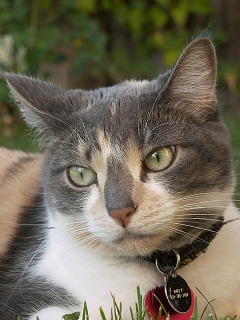Heart Disease in Cats
Heart Disease in Cats
Heart disease in cats usually appears in older cats. Little kittens can suffer from heart disease because of their genetics, but the majority of cats that have some form of a heart problem are actually geriatric cats. Heart disease in cats can appear as primary and secondary health condition. When the disease occurs as primary, it is often for an unknown reason or because of genetics. Feline experts make a difference between three types of the primary heart disease – hypertrophic, restrictive and dilated cardiomyopathy. These three types differ by their way in which affect cats. But, each of them prevents the cat’s heart from pumping enough blood into the blood vessels and can lead to heart failure with a lethal outcome. If heart disease appears as a secondary disease, it is the by-product of some other health condition such as hyperthyroidism, high blood pressure, anemia, rapid increasing in the production of hormones, lymphoma, deficiency of taurine, and some medicines. However, the main problem with heart disease in cats is its late discovery. Namely, cats are wary about diseases and try to hide the symptoms as long as possible. Moreover, heart disease does not express itself in its early stage. For that reason, the article “Top Ten Signs of Heart Disease in Cats” gives us the list of symptoms that can help us detect heart disease in cats before it is too late.
Heart Disease in Cats
10. Vomiting
9. Difficulty breathing
8. Thromboembolism
7. Depressed/ withdrawn
6. Poor appetite
5. Weight loss or gain
4. Swollen abdomen
3. Fainting/ collapsing
2. Weakness
1. Restlessness
Cat breeds which are more prone to heart disease are Maine Coons, American Shorthairs, Ragdolls, Persians and British Shorthair. No matter what is the cat breed of our pet, feline experts suggest regular visits to a vet, especially when a cat is more than eight years old, even it does not show any of the symptoms. Experts also advise us to keep a cat free from stress. To help a cat feel happy and content, we need to maintain regularity in feeding, playing, brushing, cuddling, etc. Senior cats feel good when having a stable and consistent rhythm. It diminishes their stress level, and beneficially affects their heart health.










